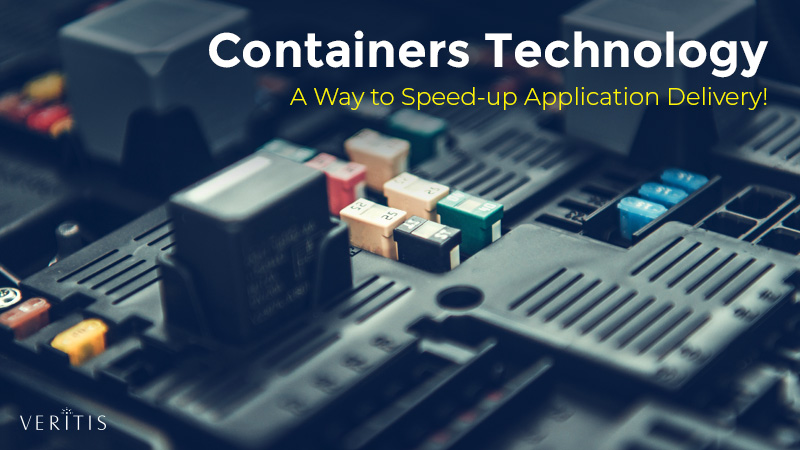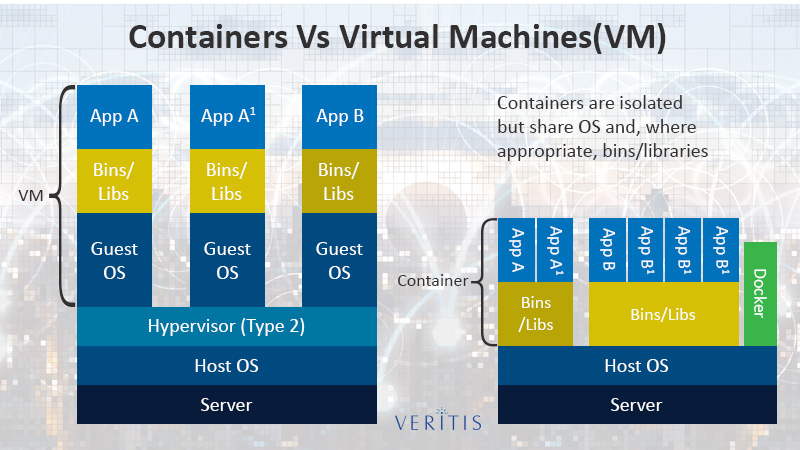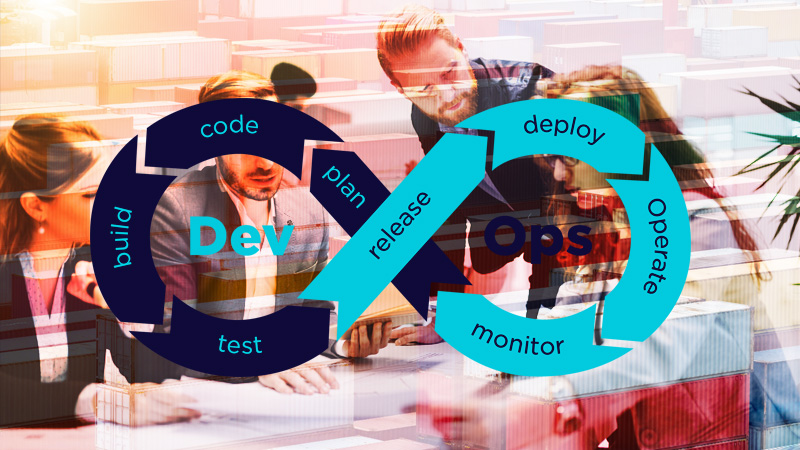
Growing technology advancements and the advent of smart devices have changed the pace of the IT industry, pushing for faster innovation and quicker development.
In this competitive scenario, business continuity has become the secret of success for every firm, from making the early product release to ensuring customer satisfaction.
So, the need of the hour is continuous development, integration, and delivery cycles!
Application-centric business transformation has intensified the race, demanding application delivery at rocket speed with minimum flaws and maximum responsiveness.
Though culture-driven transformation has brought about some change across organizations, making the way easier, there are still many gaps to be filled in driving an effective application delivery mechanism.
Containerization makes this possible!
Defining Containerization
As the name suggests, containerization or container technology services involve ‘application packaging’ into a single object with all the code, configurations, and dependencies to run applications at a faster rate in any computing environment, isolated from other processes.
Container technology is similar to virtual machines (VM), which have long been used to replicate servers and isolate applications across different operating platforms.

However, the key difference lies in dealing with the Operating System (OS) and server efficiencies. While VM runs on the server, the container environment runs at the level of a hypervisor or a virtual machine monitor.
For this reason, containerization is often referred to as ‘advanced virtualization’ or ‘container-based virtualization’.
[ALSO READ: Features of IT Virtualization Services]
Containers over Legacy Infrastructure
In the legacy IT infrastructure, application execution happens on virtual machines or bare-metal servers.
A container environment operates between the host server (virtual or bare-metal server) and the application.
By abstracting applications away from the host server, a container infrastructure offers higher runtime through simplified configuration and improved flexibility.
As a result, applications:
- Start faster, without the need to boot an entire server
- Require fewer configuration variables, irrespective of hosting platform or underlying hardware
- Run with scalability, with less time required for initiation and multiple instances
One can run a greater number of applications using containers than in a traditional VM environment, as containerization requires the operation of a container environment rather than an entirely virtualized OS, thus saving time and resources.
Depending on the requirement, containers are classified into two types:
- System Containers (for monolithic and legacy applications)
- Application Containers (for new applications.
Docker segment accounted for the majority share of the application container market in 2018 and is expected to continue its dominance over the forecast period
Containerization in DevOps CI/CD Pipeline

Given its potential in running applications effectively, containerization naturally deserves a crucial role in successful DevOps implementation.
The effective application delivery cycle naturally eases the burden on the Development (Dev) and Operations (Ops) teams, allowing them to focus more on their respective tasks.
While the Dev teams can focus on generating more quality code when building applications, the Ops teams can focus on preparing containers with all the required configurations and dependencies to run applications.
Cloud’s Platform-as-a-Service (PaaS) and Containers-as-a-Service (CaaS) models add to the above advantage by enabling process automation, thus eliminating human errors, accelerating time-to-market, and enhancing resource utilization.
The global application container market size was valued at USD 698 million in 2016 and is poised to touch USD 8.2 million by 2025, at a CAGR of 31.8%
Containerization can help improve your business in the following ways:
- Maximum utilization of server resources
- Highest application density, allowing more applications
- Portability in running applications on different platforms
- Reduced Total Cost of Ownership (TCO) by allowing multiple applications on a single hardware node
- Effective utilization of resources, enabling resource sharing among containers running on the same hardware node
- Memory optimization and efficient CPU usage through automatic vertical scaling of containers based on the current load
The overall container technology market is poised to grow from USD 1.5 million in 2018 to USD 3 billion by 2020
Container technology can offer many benefits to your IT business. Contact Veritis to get the best ‘Container Services’ for your IT business.
Read More:
